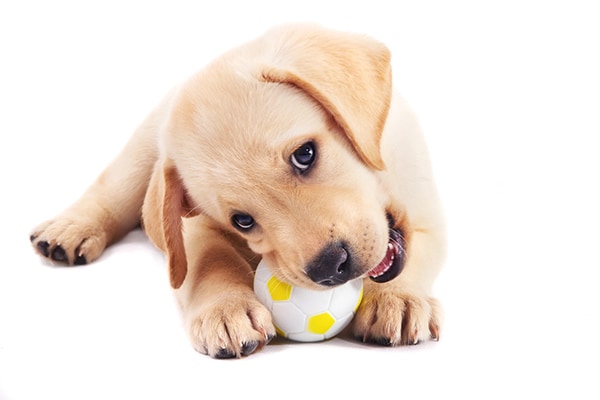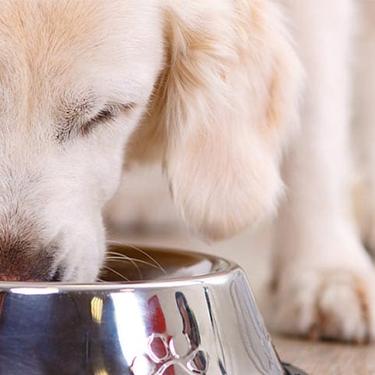
-
Find the right food for your pet
Take this quiz to see which food may be the best for your furry friend.
Find the right food for your pet
Take this quiz to see which food may be the best for your furry friend.
Featured products
 Small & Mini Savory Stew with Chicken & Vegetables Dog Food
Small & Mini Savory Stew with Chicken & Vegetables Dog FoodA delicious complement to the nutrition of Science Diet Small & Mini 7+ dog food
Shop Now Adult 7+ Perfect Digestion Chicken, Whole Oats & Brown Rice Recipe Dog Food
Adult 7+ Perfect Digestion Chicken, Whole Oats & Brown Rice Recipe Dog FoodScience Diet's breakthrough nutrition supports ultimate digestive well-being & healthy microbiome for dogs age 7+
Shop Now Adult Healthy Cuisine Roasted Chicken, Carrots & Spinach Stew Dog Food
Adult Healthy Cuisine Roasted Chicken, Carrots & Spinach Stew Dog FoodDelicious roasted chicken paired with tender vegetables in a succulent stew
Shop NowFeatured products
 Adult 7+ Senior Vitality Chicken & Vegetable Stew Cat Food
Adult 7+ Senior Vitality Chicken & Vegetable Stew Cat FoodImproves Everyday Ability to Get Up & Go
Shop Now Adult Savory Entrée Can Variety Pack Cat Food
Adult Savory Entrée Can Variety Pack Cat FoodPrecisely balanced nutrition with the delicious taste of savory minced chicken to help fuel the energy needs of cats during the prime of their life
Shop Now Adult 7+ Tender Tuna Dinner Cat Food
Adult 7+ Tender Tuna Dinner Cat FoodWith delicious chunks in a decadent gravy
Shop Now -
Dog
- Dog Tips & Articles
-
Health Category
- Weight
- Food & Environmental Sensitivities
- Urinary
- Digestive
- Joint
- Kidney
-
Life Stage
- Puppy Nutrition
- Adult Nutrition
- Senior Nutrition
Cat
- Cat Tips & Articles
-
Health Category
- Weight
- Skin & Food Sensitivities
- Urinary
- Digestive
- Kidney
-
Life Stage
- Kitten Nutrition
- Adult Nutrition
Featured articles
 Why Are Dogs and Cats So Cute?
Why Are Dogs and Cats So Cute?If waggy puppy dog tails and furry kitten yawns make you swoon, you're not alone. Why are cats so cute? And, dogs too! Let's find out!
Read More Does My Pet Hate Me?
Does My Pet Hate Me?Learn tips for bonding with your pet if you've ever thought, 'My dog doesn't like me, or 'Why do I have a standoffish cat?'
Read More Do Dogs and Cats have Belly Buttons?
Do Dogs and Cats have Belly Buttons?Learn whether cats & dogs have belly buttons like humans, what the function is, and if there are any health concerns associated with it.
Read More -


A lot of time and effort goes into raising a young dog, and although it can feel a little overwhelming at times, there's nothing quite like puppy teething. Just when you think you've got everything together, something new "erupts."
You surely have concerns regarding the stages of puppyhood, but one of the most common questions to which breeders and veterinarians have an answer is how to care for a puppy who's getting his new teeth.
Do They Lose These Teeth?
Just like people, puppies start losing their baby teeth around three to nine months of age. These are eventually replaced by permanent adult teeth that remain in your dog's mouth the rest of his life, assuming proper dental care is taken. Also like human children, puppies may want to chew more often during their teething stage than they do the rest of their youth. This can become troublesome for many owners, and puppies frequently need closer supervision during their (adorable) puppy-teething days.
Chew on This
Puppies chew almost anything as is, but during their teething stage, you might find they're more destructive than usual. Bored, teething puppies will turn to shoes and table or chair legs because they're low to the ground. Providing appropriate chew toys is crucial to keeping your home intact and allowing your puppy to naturally relieve the oral irritation. Sturdy rubber toys, nylon bones, bully sticks, and other chews make a great choice for teething puppies because they are safe and long-lasting.
Your pup may experience some pain as his big dog teeth start breaking through the gums, too. Cool sensations can help, so you can throw his favorite chew toy in the fridge for a few minutes before giving it to him. Another quick fix you can try at home? Rub an ice cube on his gums to help him feel more comfortable.
Most puppy parents already have chew toys for their new baby dogs, but making sure these are always available to your little furball will greatly reduce the chances of him ruining an item of yours. And as always, be sure to supervise your puppy whenever you offer a toy or treat, in order to prevent choking.
Baby Gates
More adventurous pups should be contained to a certain region of the home while teething, as well. Using baby gates to close off areas of the house where the most chewing accidents occur will save you both from unnecessary stress. Some even keep their puppies in pens or crates when they aren't able to fully supervise them. Choose whichever solution works best for your belongings, but don't cease from providing treats and chew toys with which he's able to find relief. You can read about more puppy proofing tips here.


Tasty Tips
Eating Right
Another important aspect of the puppy teething stage? Adequate nutrition. Although puppies who are eating a healthy, balanced diet generally don't need a supplement—unless a condition demands otherwise—it's important to check with your veterinarian to be sure their food is appropriate. And because almost every dog needs professional dental care by age three, according to the Huffington Post, it is essential to start his dental care while he's young. Brushing teeth, feeding the right food and offering safe chew toys won't just help your puppy through teething, but also keep his adult teeth healthy for the rest of his life.
Puppy teething can still be a difficult for some owners, but many don't even notice it's happening until they find a tooth laying in his doggie bed. If you do find teeth, you don't need to do anything but throw them away; a healthy puppy is fully equipped to lose his baby teeth and grow an adult set without any help. Chew toys and treats help keep them comfortable while extra supervision saves your home from damage, but outside of your regular puppy's regular oral care routine, you don't need to take any extra steps. Puppyhood is a fun time that goes by too quickly for most, so pull out his favorite rubber bone and enjoy the journey.


Katie Finlay is a pet trainer who lives in Southern California. She has been working with dogs and their owners both in person and through her online content for over six years.
Related products
Related articles

Proper nutrition for your pregnant or nursing dog is vital to her and her puppy's health. Learn what you should do provide her with the proper nutrients.

Learn the the dangers of feeding your dog chocolate, which types are most dangerous, and what to do if you discover that they have consumed chocolate.

Learn about choosing the right dog food to help ensure your adult dog will receive the correct balance of nutrition.

Learn how today's wet dog food blends have gotten a face lift, and how you'll provide your dog the nutrition he needs in the form he loves.

Put your dog on a diet without them knowing
Our low calorie formula helps you control your dog's weight. It's packed with high-quality protein for building lean muscles, and made with purposeful ingredients for a flavorful, nutritious meal. Clinically proven antioxidants, Vitamin C+E, help promote a healthy immune system.
Put your dog on a diet without them knowing
Our low calorie formula helps you control your dog's weight. It's packed with high-quality protein for building lean muscles, and made with purposeful ingredients for a flavorful, nutritious meal. Clinically proven antioxidants, Vitamin C+E, help promote a healthy immune system.

